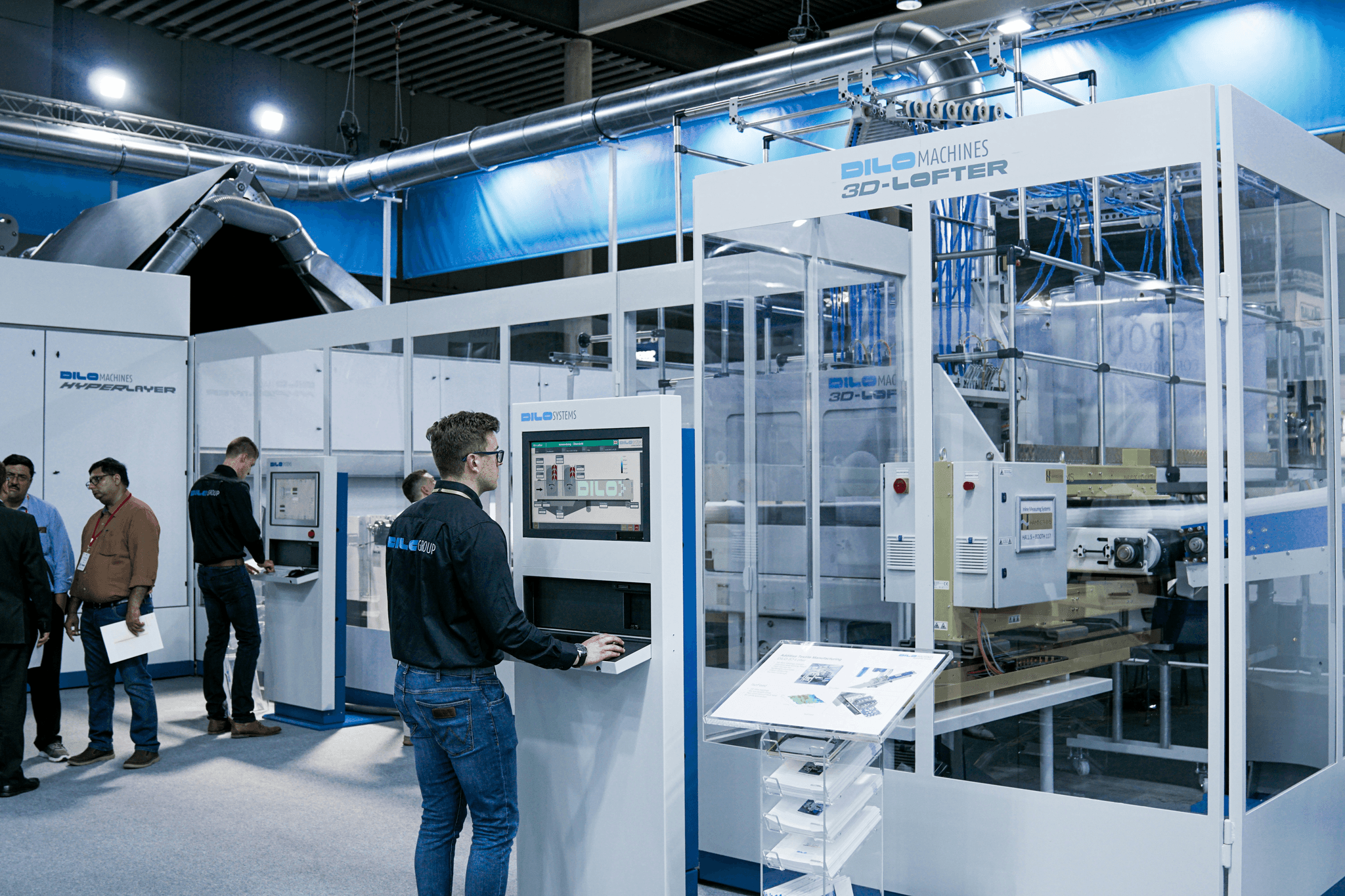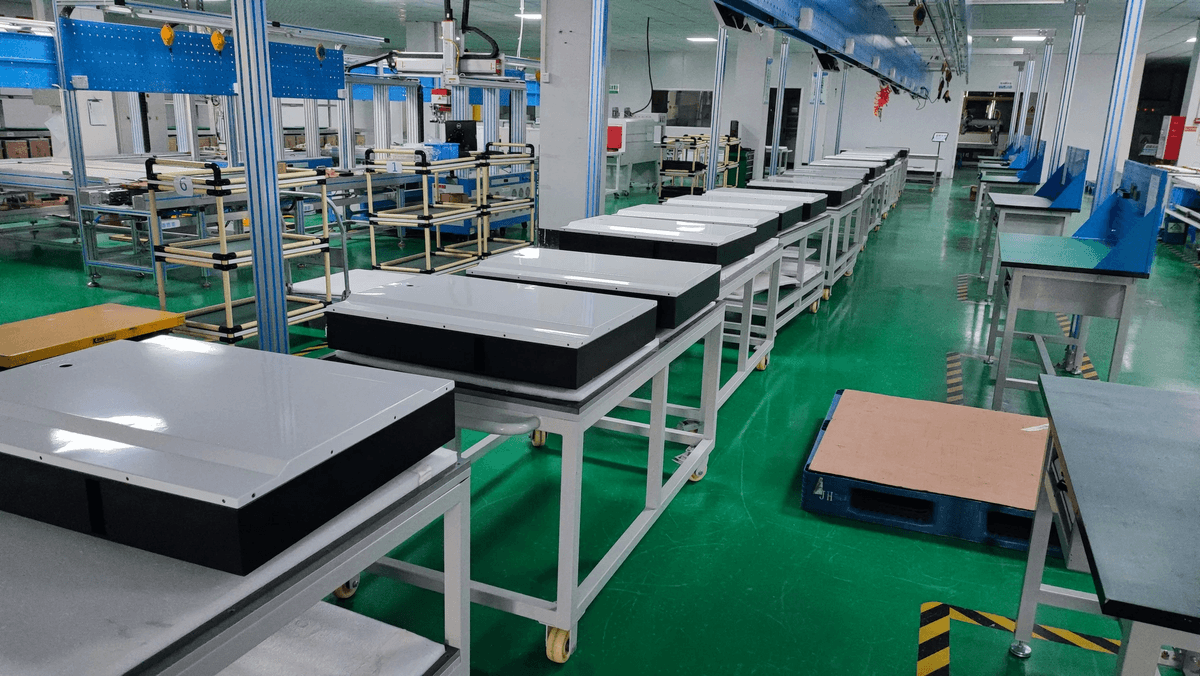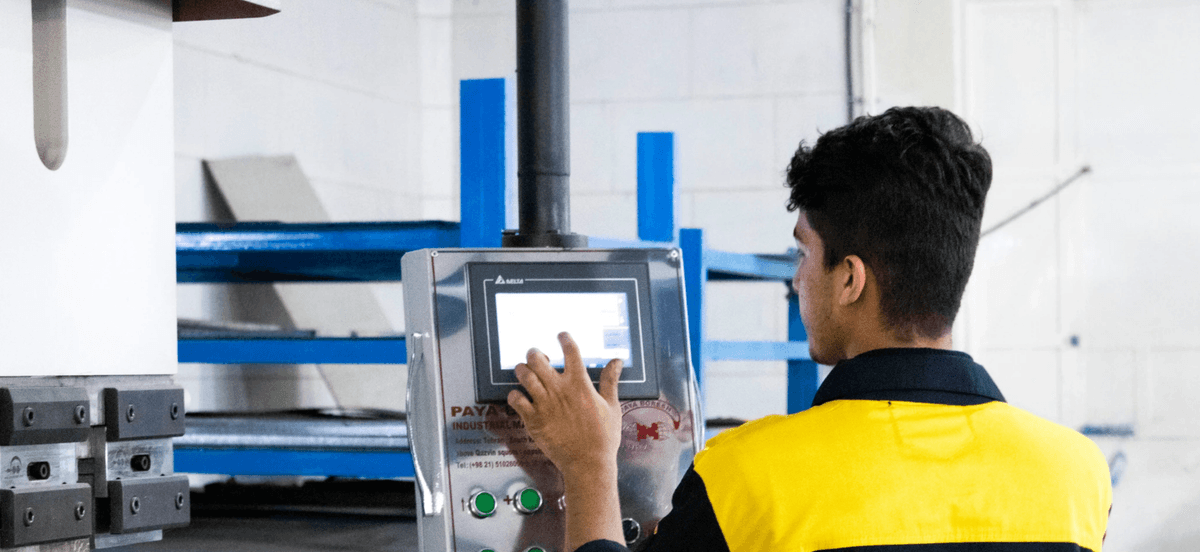Introduction
In today’s global marketplace, the significance of factory audits cannot be overstated. A factory audit in China serves as a crucial checkpoint to ensure that manufacturing processes align with quality standards and production specifications. With the complexities of international trade, understanding the nuances of these audits is essential for businesses aiming to maintain high-quality production.
Understanding the Importance of Factory Audits
Factory audits are vital for assessing and improving production quality across various industries. By conducting thorough evaluations, companies can identify potential weaknesses in their suppliers' manufacturing processes, thus mitigating risks associated with poor quality control in manufacturing. Regular factory audits not only enhance product reliability but also foster trust between manufacturers and buyers.
The Role of Quality Control in Manufacturing
Quality control in manufacturing plays a pivotal role in ensuring that products meet established standards before they reach consumers. This involves implementing systematic quality checks in manufacturing that scrutinize every stage of production, from raw materials to finished goods. Effective quality control measures help prevent defects and ensure compliance with industry regulations, ultimately safeguarding a brand’s reputation.
Navigating Quality Inspections in China
Navigating quality inspections in China can be daunting due to cultural differences and varying standards across regions. However, leveraging china quality control inspection services can streamline this process significantly by providing local expertise and insights into best practices for conducting effective audits. Understanding these dynamics is crucial for international businesses looking to maintain high-quality production while fostering strong supplier relationships.
What is a Factory Audit?

Factory audits are essential tools in the realm of manufacturing, particularly in regions like China where quality control can sometimes be a challenge. These audits serve as comprehensive evaluations of a factory's processes, systems, and adherence to industry standards. By understanding what a factory audit entails, businesses can better navigate the complexities of production quality and ensure that their products meet the necessary specifications.
Definition and Purpose of Factory Audits
A factory audit is an in-depth assessment designed to evaluate a manufacturing facility's operations and compliance with established quality standards. The primary purpose of these audits is to identify areas where improvements can be made, ensuring that products meet safety and quality requirements before they reach consumers. In essence, factory audits act as a safeguard against potential defects and inconsistencies in production quality, making them vital for effective quality control in manufacturing.
Types of Factory Audits: Safety and Quality
Factory audits typically fall into two categories: safety audits and quality audits. Safety audits focus on assessing the working conditions within the factory, ensuring that employees are not exposed to hazardous environments or practices that could lead to accidents or injuries. On the other hand, quality audits concentrate on evaluating production processes and product outcomes to ensure they align with specified standards—this includes rigorous quality checks in manufacturing that help maintain high levels of product integrity.
The Factory Audit Process
The factory audit process involves several key steps aimed at thoroughly evaluating various aspects of a manufacturing facility. Initially, it begins with pre-audit planning where objectives are defined, followed by on-site inspections where auditors assess everything from equipment maintenance to employee training practices. After gathering data through observations and documentation review, auditors compile their findings into reports that highlight strengths as well as areas for improvement—this feedback loop is crucial for enhancing overall performance in manufacturing and quality control.
Importance of Supplier Evaluations

Supplier evaluations are crucial for maintaining high standards in manufacturing and quality control. A thorough assessment not only identifies capable suppliers but also ensures that they adhere to quality checks in manufacturing processes. When you prioritize supplier evaluations, you set the foundation for consistent production quality and reliability.
Assessing Supplier Capabilities for Quality Production
Evaluating a supplier's capabilities is essential to ensure they can meet your specific production quality requirements. This involves examining their facilities, equipment, and workforce to determine if they align with your standards for quality control in manufacturing. By conducting a factory audit in China, you can gain valuable insights into the supplier’s ability to deliver products that meet your expectations.
Additionally, understanding a supplier's technical expertise and experience can help gauge their capacity for innovation and efficiency. Suppliers who invest in advanced technologies are often more adept at meeting stringent quality checks in manufacturing. Hence, assessing these capabilities helps mitigate risks associated with subpar production outcomes.
Evaluating Past Performance and Reliability
A supplier’s past performance serves as a reliable indicator of future success; thus, evaluating this aspect is vital during the selection process. Historical data regarding delivery times, defect rates, and compliance with quality inspection in manufacturing can provide insights into their reliability. Regularly reviewing these metrics can illuminate patterns that may affect your overall supply chain efficiency.
Moreover, engaging with previous clients or conducting third-party assessments through china quality control inspection services can yield additional information about a supplier's track record. This due diligence helps you avoid potential pitfalls associated with unreliable suppliers who might compromise your production quality over time. Ultimately, selecting a dependable partner enhances the effectiveness of your overall manufacturing strategy.
The Impact of Supplier Selection on Quality Control
The choice of suppliers directly influences the effectiveness of your quality control efforts within the manufacturing process. Selecting reputable suppliers ensures that raw materials and components meet industry standards necessary for maintaining high-quality output. Inadequate selection could lead to increased defects or failures down the line—issues that could have been avoided through careful evaluation.
Furthermore, strong partnerships with reliable suppliers foster open communication regarding production challenges or changes needed to enhance product quality further. This collaboration is essential when implementing effective measures related to quality control China initiatives aimed at improving overall performance across the board. By prioritizing thorough evaluations during supplier selection, businesses can significantly reduce risks while enhancing their competitive edge.
Key Elements in Factory Audits

When it comes to ensuring quality in manufacturing, factory audits play a pivotal role. These audits are not just about checking off boxes; they provide valuable insights into the production processes and overall supplier capabilities. In this section, we will dive into the critical elements of factory audits that help maintain high standards of quality control in manufacturing.
Evaluating Manufacturing Processes
Evaluating manufacturing processes is at the heart of any effective factory audit in China. This involves a thorough examination of how products are made, from raw material sourcing to final assembly. By scrutinizing each step, auditors can identify potential bottlenecks or inefficiencies that could compromise production quality and ultimately impact customer satisfaction.
Moreover, understanding the nuances of manufacturing processes allows for tailored quality checks in manufacturing that align with specific industry standards. For instance, if a factory employs outdated machinery or lacks skilled labor, these factors can significantly affect output consistency and reliability. Therefore, a comprehensive evaluation helps ensure that manufacturers not only meet current demands but also adapt to future challenges.
Importance of Documentation Review
Documentation review is another key element in conducting a successful factory audit china. Proper records provide transparency and accountability throughout the production lifecycle, making it easier to trace issues back to their source when problems arise. From quality control reports to safety certifications, having well-organized documentation serves as evidence that a manufacturer adheres to industry regulations and best practices.
Additionally, documentation helps evaluate past performance and reliability—two crucial aspects when assessing supplier capabilities for quality production. Without solid records backing up claims about efficiency or safety compliance, it becomes difficult for auditors to trust the information presented by manufacturers. Thus, an exhaustive review of documentation is essential for establishing credibility within the realm of china quality control inspection services.
Ensuring Compliance with Industry Standards
Ensuring compliance with industry standards is non-negotiable during any factory audit process. Manufacturers must adhere to local and international regulations governing safety and quality control china practices; failure to do so can lead not only to financial penalties but also reputational damage that could jeopardize future business opportunities. Auditors must be well-versed in these standards so they can effectively identify areas where factories may fall short.
Furthermore, compliance checks often involve assessing whether factories utilize appropriate materials and follow established procedures throughout their operations—critical components for maintaining high-quality outputs over time. By prioritizing adherence to industry benchmarks during audits, companies can significantly reduce risks associated with subpar production methods or unsafe working conditions.
In summary, evaluating manufacturing processes, conducting thorough documentation reviews, and ensuring compliance with industry standards are vital elements of effective factory audits in China. These components collectively contribute to robust quality inspection in manufacturing efforts aimed at enhancing production efficiency while safeguarding product integrity.
Quality Control in Manufacturing Explained

In the world of manufacturing, quality control is the backbone that supports consistent production quality. It encompasses a series of systematic processes designed to ensure that products meet specific standards before they reach consumers. Understanding these quality checks in manufacturing is crucial for any business aiming to maintain a competitive edge.
Understanding Quality Checks in Manufacturing
Quality checks in manufacturing serve as essential checkpoints throughout the production process. These checks can take various forms, including visual inspections, measurements, and functional tests, each designed to catch defects early on. By implementing rigorous quality control measures at every stage, manufacturers can significantly reduce waste and enhance overall efficiency.
The significance of these quality checks cannot be overstated; they not only ensure product reliability but also foster customer trust. In a landscape where consumers are more informed than ever, delivering consistently high-quality products is non-negotiable. Thus, effective quality checks become an integral part of the broader strategy of manufacturing and quality control.
The Role of Quality Inspection in Manufacturing
Quality inspection in manufacturing plays a pivotal role in safeguarding product integrity and compliance with industry standards. This process involves scrutinizing raw materials and finished goods to identify any deviations from established specifications. Regular inspections are particularly vital when dealing with suppliers overseas; for instance, factory audit China practices include thorough evaluations to ensure that imported goods meet local regulations.
Incorporating comprehensive quality inspection protocols into your operations can minimize risks associated with defective products entering the market. Not only does this protect your brand's reputation, but it also mitigates potential financial losses due to returns or recalls. With China’s expanding role as a global supplier hub, leveraging china quality control inspection services becomes increasingly important for businesses looking to maintain high production standards.
Implementing Effective Quality Control Measures
Implementing effective quality control measures requires a strategic approach tailored to your specific manufacturing processes. Start by establishing clear guidelines and benchmarks that outline what constitutes acceptable production quality within your organization. This foundation allows teams to conduct meaningful assessments during factory audits and ensures consistency across all levels of production.
Training staff on these guidelines is equally critical; employees should understand their roles within the larger framework of quality control in manufacturing. Regular audits—especially those focused on factory audit China—can help identify areas for improvement while fostering an environment where continuous enhancement becomes part of the company culture. Ultimately, investing time and resources into robust quality control measures will yield dividends through increased efficiency and customer satisfaction.
How to Conduct a Factory Audit in China

Conducting a factory audit in China is essential for ensuring that manufacturing processes meet international standards and quality expectations. As the landscape of global production evolves, understanding how to effectively navigate quality control in manufacturing becomes increasingly critical. This section will provide you with practical steps, tools, and tips to enhance your factory audit experience.
Steps for Effective Quality Control China Audits
The first step in conducting a quality control audit in China is to establish clear objectives tailored to your specific needs. This involves identifying what aspects of the production process you wish to evaluate, such as safety protocols or compliance with industry standards. Next, prepare a comprehensive checklist that includes key areas like documentation review, equipment assessment, and employee training evaluations.
Once you've set your objectives and checklist, it's time to schedule the audit at an appropriate time when production is active but not overwhelming. Engaging with the factory management ahead of time can help ensure they are prepared for your visit and understand what will be evaluated during the quality inspection in manufacturing. Finally, upon arrival at the facility, maintain open communication with staff and management; this fosters transparency and helps uncover any potential issues related to production quality.
Utilizing China Inspection Pro for Better Insights
One of the best strategies for enhancing your factory audit experience is leveraging services like China Inspection Pro. These china quality control inspection services offer expert insights into local manufacturing practices while providing access to experienced inspectors who understand regional nuances. By utilizing their expertise, you can gain valuable information about potential risks or areas needing improvement within your supply chain.
China Inspection Pro also provides real-time reporting on quality checks in manufacturing processes that help streamline decision-making post-audit. Their detailed reports highlight compliance levels and identify any discrepancies that may affect overall product integrity or safety standards. By integrating these insights into your supplier evaluation process, you can make informed decisions about future collaborations based on reliable data.
Tips for Navigating Cultural Differences
When conducting a factory audit in China, being aware of cultural differences can significantly impact the effectiveness of your visit. Building rapport with local staff is crucial; taking time to engage in polite conversation demonstrates respect for their culture and fosters cooperation during the audit process. Understanding customary practices around hierarchy can also play a role; addressing senior management appropriately may enhance communication flow throughout the facility.
Additionally, patience is key when navigating language barriers or differing business customs during your quality control china audits. Consider employing an interpreter if necessary to ensure clarity during discussions about production processes or quality control measures being implemented on-site. Lastly, being flexible and adaptable will go a long way—embracing local practices while maintaining focus on achieving effective outcomes will ultimately lead to improved results in both auditing processes and overall supplier relationships.
Conclusion
In the ever-evolving landscape of manufacturing, regular factory audits serve as a cornerstone for ensuring high production quality. By implementing consistent quality checks in manufacturing, businesses can identify potential issues before they escalate into costly problems. The benefits of adhering to a systematic approach in factory audit China extend beyond mere compliance; they foster a culture of excellence and continuous improvement.
Benefits of Regular Factory Audits
Conducting regular factory audits is crucial for maintaining robust quality control in manufacturing processes. These audits not only help assess compliance with industry standards but also provide valuable insights into supplier capabilities and production efficiency. Moreover, frequent evaluations can lead to enhanced operational practices, ultimately resulting in superior product quality and customer satisfaction.
Enhancing Trust Through Quality Control
Quality control is the bedrock upon which trust is built between manufacturers and their clients. When companies prioritize rigorous quality inspection in manufacturing, they demonstrate their commitment to delivering reliable products consistently. This transparency fosters stronger relationships with suppliers and customers alike, reinforcing confidence that the products meet or exceed expectations.
The Future of Manufacturing Quality Inspections
Looking ahead, the future of manufacturing quality inspections lies in innovation and adaptability. As technology continues to advance, integrating smart solutions into factory audit China processes will become increasingly essential for effective quality control China practices. Embracing these advancements will not only streamline operations but also enhance accuracy in identifying production discrepancies—ultimately paving the way for a new era of excellence in manufacturing.
